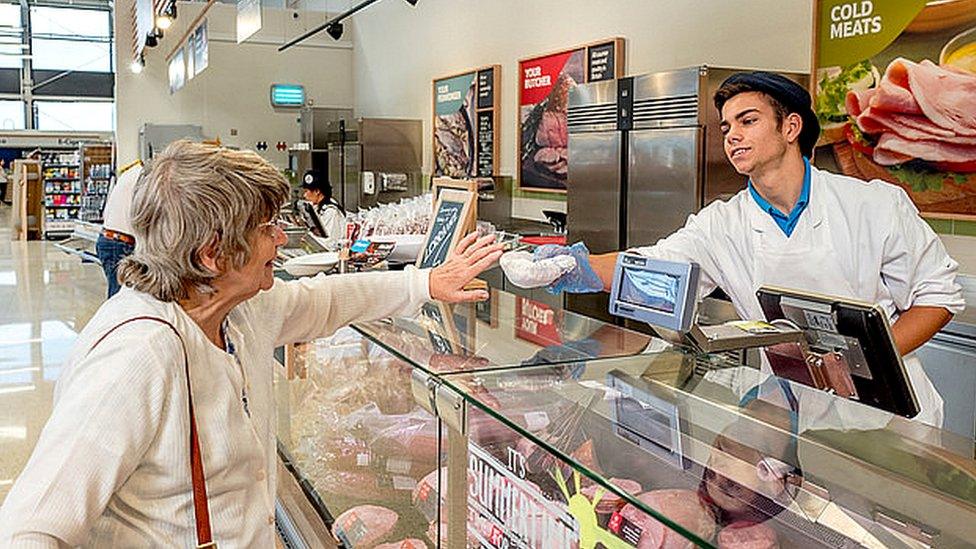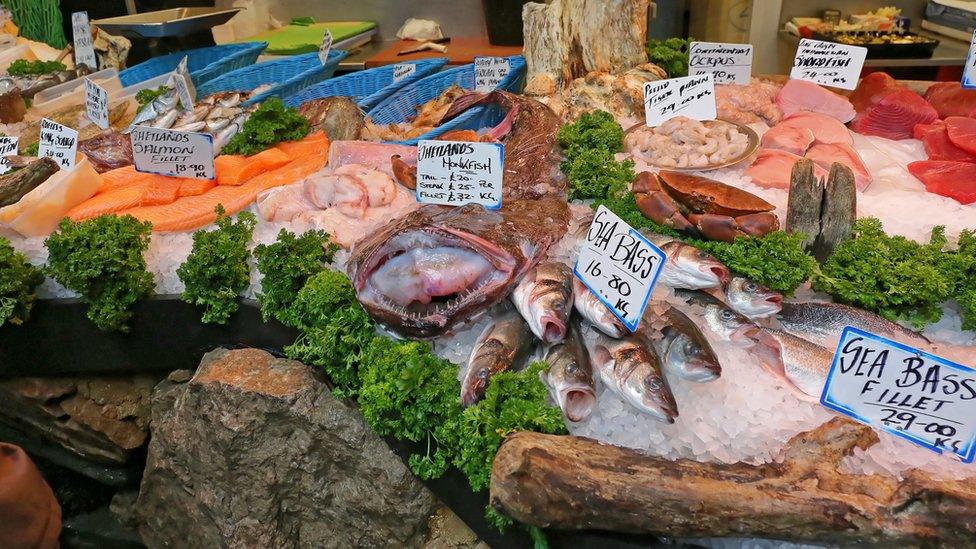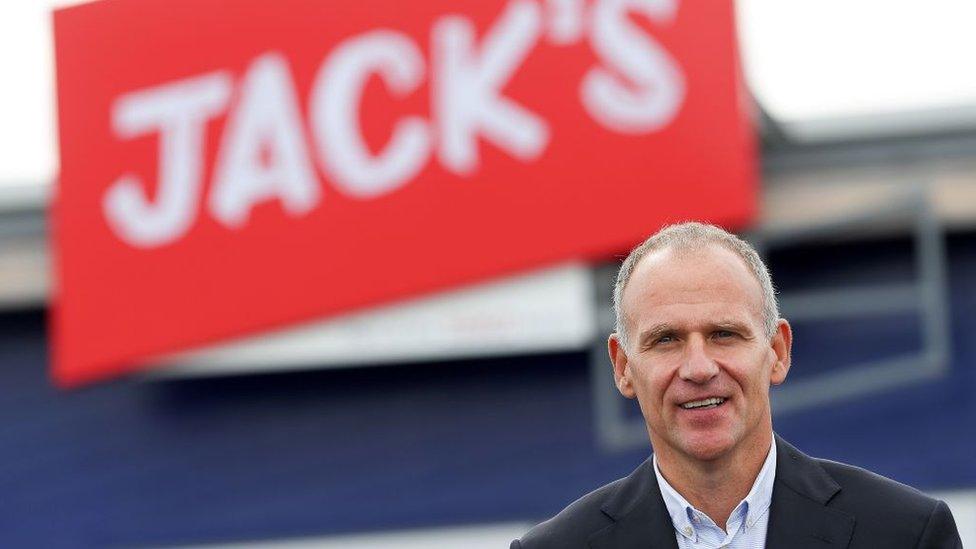Can a shift in shopping help Tesco beat the discounters?
- Published

More than 60 years ago, Tesco introduced meat and cheese counters for the first time at its new superstore in Maldon, Essex.
Today, it is getting rid of them at 90 of its UK stores.
Tesco will keep meat, fish and deli counters at 700 supermarkets but while some of them will be staffed full-time, others will only be manned on a "flexible" basis.
Britain's biggest supermarket chain says it is making the changes because people don't shop like they used to.
Gone - or fewer - are the days of the big weekly shop.
"The market is challenging and we need to continually adapt to remain competitive and respond to how customers want to shop," says Jason Tarry, chief executive of Tesco UK & Ireland.
Diane Wehrle, insights director at Springboard, the retail research firm, says trends have changed from 30 or 40 years ago when people wanted to shop at big, clean, new supermarkets.
"We are returning to this place where we once started from, which is that we wanted to be careful of the provenance of our food and we're more conscious about waste, so we're not shopping as we did in the 1980s and the early 1990s which was this huge once-a-week shop.
"That's the inevitable, cyclical nature of retail. We came from a place where we used to have independents - the butchers and the bakers - and now we're back there because people want to go to those individual shops."
People are also busier.
Catherine Shuttleworth, founder and chief executive of marketing agency Savvy, which acts for a number of retailers, says: "When you're in a big supermarket you want to be in and out as soon as possible."

People are increasingly using smaller independent shops, says Diane Wehrle
"You don't want to be queuing twice," she says - once for the meat or fish counter and then for the checkout.
Ms Shuttleworth also reckons that younger "millennial" shoppers with "a genuine interest" in food have helped shift shopping patterns, prompted by the growing popularity of farmers' markets and high profile chefs.
The discounters
At the heart of Tesco's decision, however, is cost.
Group chief executive Dave Lewis said in October 2016 that he wanted to reduce costs by £1.5bn over the following three years.
He has already taken 10,000 jobs out of Tesco since he joined the supermarket chain in 2014.
The reduction in fish, meat and deli counters forms part of a new cost-cutting plan that will affect some 9,000 roles.
And hovering over the decision is the spectre of the German discounters Aldi and Lidl.
While both brands are still relative tiddlers compared to Tesco in terms of market share - Tesco commands 27.8% of the UK grocery market, Aldi has 7.4% and Lidl has 5.4% - their presence has rattled the supermarket giant enough for it to recently introduce its own discount chain called Jack's.
Like Aldi and Lidl, Jack's does not have a fish, meat or deli counter - its only fresh food counter is a bakery.

Tesco group chief executive Dave Lewis opened discount chain Jack's in September last year
By following suit in Tesco stores, Tesco will reduce operating costs which will presumably mean that savings can be passed on to shoppers.
But Steve Jones, managing director at negotiationexpert.co.uk, believes the company is wrong to get rid of fresh food counters.
Mr Jones, who used to work at Tesco as a buyer, says: "If Tesco starts to strip out the things that make them different to Aldi and Lidl, all that is going to happen is that people are going to go to the place that's the cheapest."
However, Ms Wehrle says: "If they are not receiving a return on their investment on their deli counters then it makes sense not to have them as part of their stores."
And Bruno Monteyne, senior analyst for European food retailers at Bernstein, says: "Marks & Spencer, which I think has the strongest quality brand in the UK, doesn't have any counters either so there is no definition that says that if you really want to be known for quality food you need to have counters.
"There are two retailers who do it really well - Waitrose is known for it and also Morrisons on different parts of the quality spectrum. There are different ways of having quality."
Thomas Moore of Aberdeen Standard Investments believes that Tesco can use its clout to slow Aldi and Lidl's expansion.
"Look at that buying power and look at Sainsbury's and Asda if they get together," he says. "Those two chains have got enough volume that they should have the best buying power.
"They are trying to arrest the growth of Aldi and Lidl and they've noticed that people are shopping differently in that they are moving away from these big stores. They've got to be able to get down the cost curve so that their unit costs are lower and they can then still maintain their profit margins."
Ms Wehrle, though, is unsure whether the changes at Tesco will work.
"Whether or not it will make a huge difference to Tesco's competitive stance against Aldi and Lidl is something we'll have to wait and see," she says.
- Published28 January 2019
- Published25 January 2019
